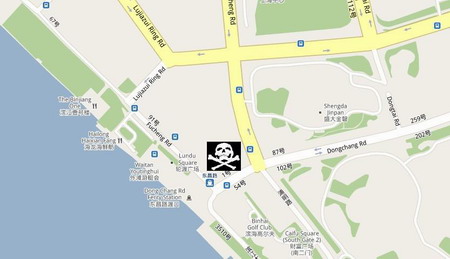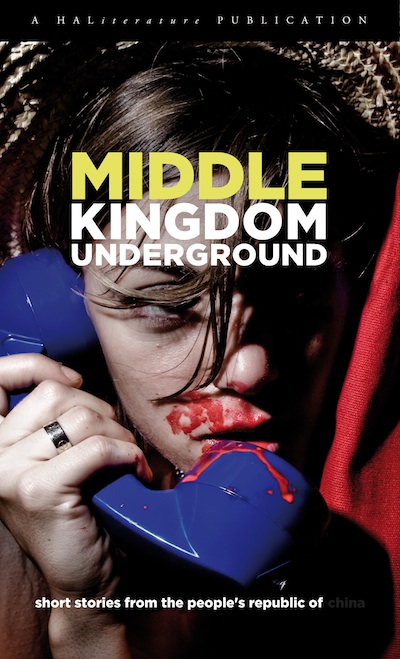Hitotoki- Fucheng Lu, Yincheng Lu-1.30am Halloween 2009
by Sarah Lowe
It’s science fiction that you’ve found here; a parallel world. The street is bare, effete; on the left side garbage spills out from its containers, the contents sprawled into the wet gutter. Two halves of a female mannequin lie propped against a dumpster, the whiteness of her plastic skin glowing like a lean, split moon in the street light.
The three of you are drunk, and maybe stoned, but it’s too early to tell. You know that you’re east of the river somewhere, in Pudong, and you’ve passed the clubs, the decked out laowai dressed like Chinese school children or construction workers. Some are posing, standing self-impressed before a pit, with the men at work constructing the new Bund, orange helmets knocked together beneath a spotlight that convinces you for a moment that its not reality you’re watching, but a reality show.
You know that earlier you were at a party, and it’s Halloween. An eyeliner pencil has turned you, your boyfriend and your friend into cats; whiskers smeared on cheeks and swirly moustaches below noses. At the party you ordered a drink with coconut rum and red peppers and bought rounds for your friends, felt your cheeks bloom as the glasses emptied. Now the evening air threatens bare arms with a sudden cold, the wind hauls its hands through your hair.
The night unfolds gently like a spool of dark fabric; you are sliding across it, moving away from the crowds, and onto empty city blocks, where office buildings are reaching up like ghostly summits into the clear night. The streets look slightly wet, and spongy from a distance, porous and magical. You are definitely stoned now.
There is street food. There is always street food. Three blocks ahead a curtain of smoke billows through the air. A Xinjiang man stands before what appears from a distance to be a smoking, rusted keyboard, his makeshift barbeque, a Family Mart lit up behind him. He stands bold as a postcard, strokes of blue in his eyes and the crisp white of his prayer cap atop his head.
Hunger seizes you; your friend begins to order: tofu, mutton, lamb skewers. A beer is produced from nowhere, and as we pass it between us, the Xinjiang man produces a long, silver knife. It is the color of an old fork, and dull. Stepping away from his barbeque, he wields it dramatically. One leg lifts delicately off the ground; he stabs the knife into the smoky air. You are huddled before him, unsure and entranced. A small crowd of Han Chinese outside the Family Mart circle the barbeque, watching the foreigners watch the foreigner. It is your friend who breaks the spell first, his gentle voice cutting the air: I’m a Muslim, too. We are Americans. He speaks in Chinese as your boyfriend clutches your arm, translating into your ear. The man puts his knife away, begins to dish out the kebabs, his voice low. America is a good country, he says, I like America. In America people have rights. A Chinese man in a blue track suit begins to interject, loudly, as your friend turns towards your boyfriend, his green eyes wide, like, are you hearing this. He is, you are, but it doesn’t matter because the wind has shifted again, you are beginning to blow away. The three of you are crammed in the back of a taxi cab, in the tunnel under the river, going home.




Pudong baby! It’s so far away….haha